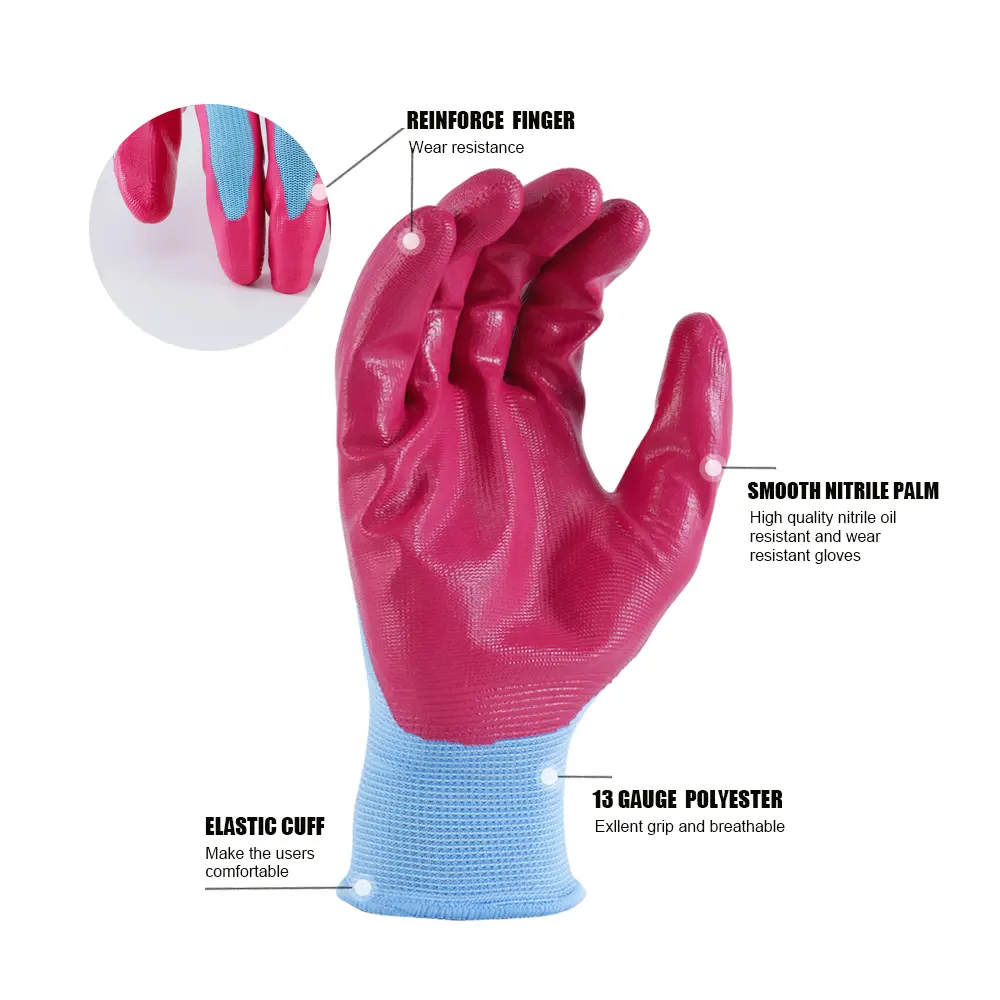
When choosing work gloves, protection and durability matter most. Many industries rely on nitrile-coated gloves, but why? What makes them so effective? Let's explore their true purpose.
Nitrile-coated gloves provide superior grip, abrasion resistance, and chemical protection, making them ideal for industrial, construction, and handling tasks.
Understanding their applications helps businesses and workers choose the right gloves. Below, we'll dive into their uses and benefits.
[Table of contents]
What are nitrile coated gloves used for?
Nitrile-coated gloves are widely used in industries that require strong grip, abrasion resistance, and protection from chemicals.
They are primarily used in manufacturing, construction, warehousing, automotive work, and general material handling.

Why are nitrile-coated gloves so popular?
Nitrile coatings provide excellent resistance to oil, grease, and certain chemicals, making them useful in multiple industries. Unlike latex, nitrile is hypoallergenic, reducing the risk of allergic reactions.
Common industries using nitrile-coated gloves
| Industry | Application |
|---|---|
| Manufacturing | Handling machinery and tools |
| Construction | Protection from abrasions and cuts |
| Warehousing | Grip for handling boxes & materials |
| Automotive | Resistance to oils and lubricants |
| Assembly line | Dexterity and precision |
What are nitrile gloves used for?
Nitrile gloves are used in both disposable and coated forms across many industries.
Disposable nitrile gloves are common in medical, food, and lab settings, while nitrile-coated gloves are ideal for industrial and mechanical work.
Differences between disposable and coated nitrile gloves
Disposable nitrile gloves are thin, flexible, and provide chemical resistance. Nitrile-coated gloves have a fabric base with a nitrile coating, offering better durability and grip.
| Feature | Disposable Nitrile Gloves | Nitrile-Coated Gloves |
|---|---|---|
| Material | 100% nitrile | Fabric with nitrile coating |
| Use | Medical, food handling | Industrial, mechanical work |
| Protection Level | Chemical resistance | Grip, abrasion resistance |
Why do people use nitrile gloves?
Nitrile gloves offer durability, flexibility, and protection from oils, chemicals, and abrasions.
They are used because they provide better resistance to chemicals and punctures compared to latex and vinyl gloves.
Benefits of nitrile gloves
- Chemical resistance – Protects against oils, solvents, and some acids.
- Durability – Higher puncture and abrasion resistance.
- Allergy-friendly – No risk of latex allergies.
- Grip & dexterity – Excellent for handling slippery or small objects.
What can nitrile gloves only be used for?
While nitrile gloves are versatile, they are not suitable for all tasks.
They should be used for handling chemicals, oils, and abrasives, but are not recommended for high-heat or electrical work.
When not to use nitrile gloves
- Heat exposure – Nitrile melts at high temperatures.
- Electrical work – It does not provide proper insulation.
- Heavy-duty impact tasks – May require reinforced gloves.
Conclusion
Nitrile-coated gloves provide grip, durability, and chemical resistance, making them essential in various industries. Choosing the right type ensures safety and efficiency.
